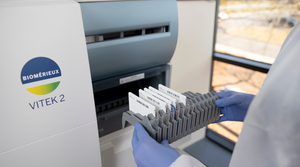Medical Devices Won't Benefit from UK's CE Marking Extension
The UK government has decided to recognize CE marking indefinitely for "virtually all goods," but that does not include medical devices.
August 16, 2023

The UK government recently announced an indefinite extension to the use of CE marking for most goods. The extended recognition of CE marking does not, however, apply to medical devices.
That said, the UK government stands by its previous amendment to the Medical Device Regulations to accept CE marked medical devices on the Great Britain market for longer than initially anticipated.
General medical devices compliant with the European Union medical devices directive or EU active implantable medical devices directive with a valid declaration and CE marking can be placed on the Great Britain market up until the certificate expires or until June 30, 2028, whichever comes first.
In vitro diagnostic devices (IVDs) compliant with the EU in vitro diagnostic medical devices directive can be placed on the Great Britain market until June 30, 2030, or until the certificate expires, whichever comes sooner.
General medical devices, including custom-made devices, compliant with the EU medical devices regulation (EU MDR) and IVDs compliant with the EU in vitro diagnostic regulation (EU IVDR) can be placed on the Great Britain market up until June 30, 2030.
Is the end nigh for UKCA marks for medical devices?
Alex Denoon, a partner at London, England-based Bristows law firm, and Vivien Zhu, a trainee solicitor at the firm, recently speculated that the indefinite extension to the use of CE marking could signal the end of UKCA marks (UK Conformity Assessment; the UK's version of the CE mark) even for medical devices. Their speculation is based on the UK government's stated intentions to simplify and expedite regulatory approval for medical devices.
"Abandoning the requirement for UKCA marks on [Great Britain] medical devices would go some way in achieving this," Denoon and Zhu write. "It may be that the government will extend CE mark recognition for medical devices indefinitely closer to the first significant deadline in 2028."
That wouldn't necessarily apply to innovative devices, however.
"Even if the UK government does abandon the UKCA mark for medical devices approved elsewhere, we expect the UKCA mark to be retained for innovative devices," Denoon and Zhu write, pointing to the UK government's Innovative Devices Access Pathway (IDAP).
The IDAP is expected to launch later this year, run by the Medicines and Healthcare products Regulatory Agency, the National Institute for Health and Care Excellence, Health Technology Wales, and Scottish Health Technology Group. The program is intended to help take uncertainty out of the route to access, bringing innovative technologies to patients that can transform health outcomes.
According to Denoon and Zhu, the IDAP would allow the MHRA to authorize early market access for new devices that meet a critical unmet need. This temporary authorization would enable a manufacturer to begin commercialization while gathering the comprehensive data needed to support a UKCA mark and while waiting for the conclusion of the UKCA mark.
"The IDAP will streamline the regulatory process for innovative devices, especially those that may find it difficult to generate the required standard of evidence for a Conformity Assessment, to ensure UK patients have access to innovative devices," Denoon and Zhu write. "The government continues to depict the UK as a global hub for innovation and to position the UK as having the world’s fastest and simplest regulatory approval process. As such, there may still be space for UKCA marks on the [Great Britain] market yet."
About the Author(s)
You May Also Like



